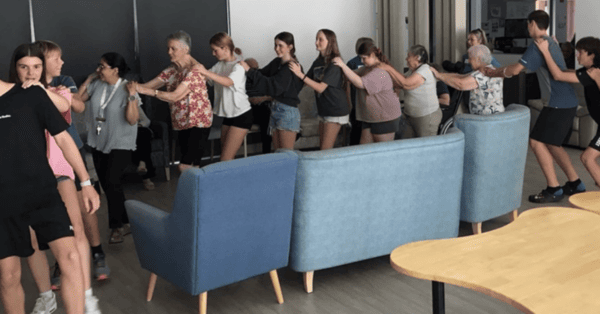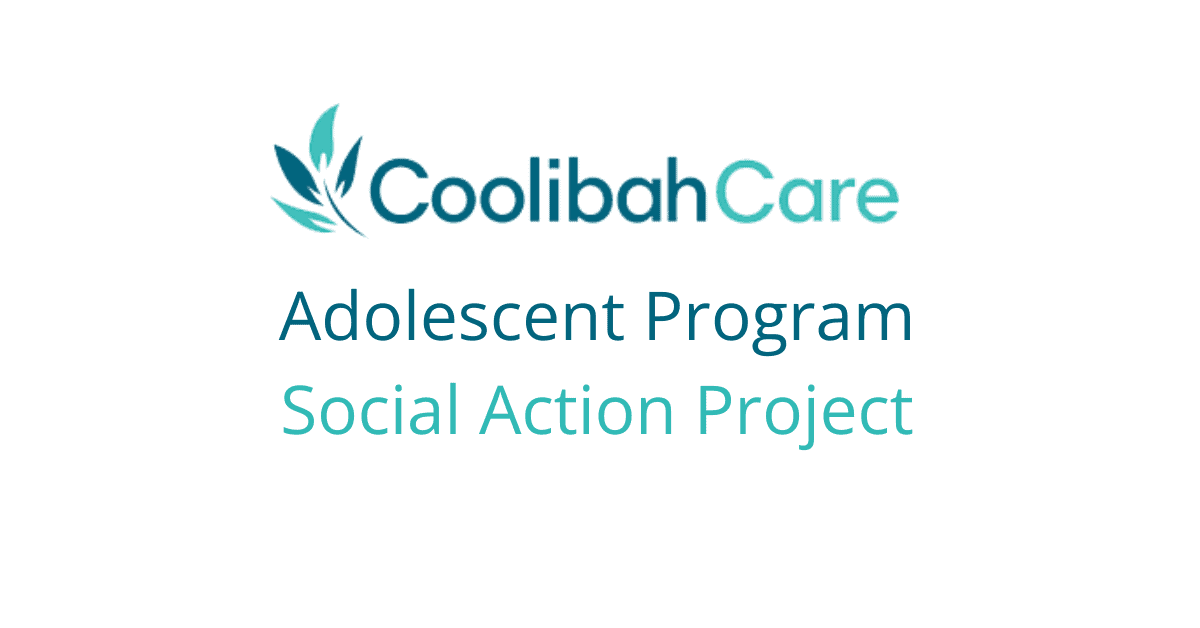Year 8 student, Amelia Petit-Clair from Koobalong Advisory, writes about her experiences at Coolibah Aged Care facility as part of the Adolescent Program Social Action Project. Coolibah Care is a not-for-profit aged care provider based in Mandurah, Western Australia. Established in 1969, Coolibah provides residential care to 136 residents, as well as delivering home care services, respite services, and independent living options. The group has been visiting residents in the specialist dementia wings. Research undertaken by the Australian Institute of Health and Welfare suggests that more than half of all aged care residents have dementia. Many of the students found the return visits confronting as patients they had formed bonds with during previous visits, no longer remembered their names, bringing home the reality of the disease.

Hi, we are a group of year 7-10 students from the Adolescent Program at Rockingham Montessori. For the past few months, we have been visiting Coolibah Aged Care facility (as seen in one of our previous newsletters). Last term (term 4, 2023) we visited the low-need dementia wing. This term we have been visiting the higher-need dementia wing. We have found it interesting to see the difference between both wings and how we interact with them. Here are some of the interesting differences.
| Low Needs | High Needs |
| Occasional memory lapses Can take care of themselves Unwilling to try new things More self-centred | Need help with most daily tasks Need help walking, eating, and dressing Do not remember family members Can be aggressive |
We will keep you posted on our journey in our next newsletter. In the meantime, here is a bit more information about dementia patients.
There are 7 stages of dementia. During Stage 1, people will have occasional memory lapses, but can still perform daily tasks and care for themselves. They will need quiet moments and activities scheduled during the day. In Stage 7, most people will have lost the ability to talk and communicate. They will require assistance with most daily tasks, such as dressing, bathing, eating, walking, and going to the toilet. The people we are working with are in between Stages 5 and 6. They can still dress themselves and walk, but they need help to eat.

